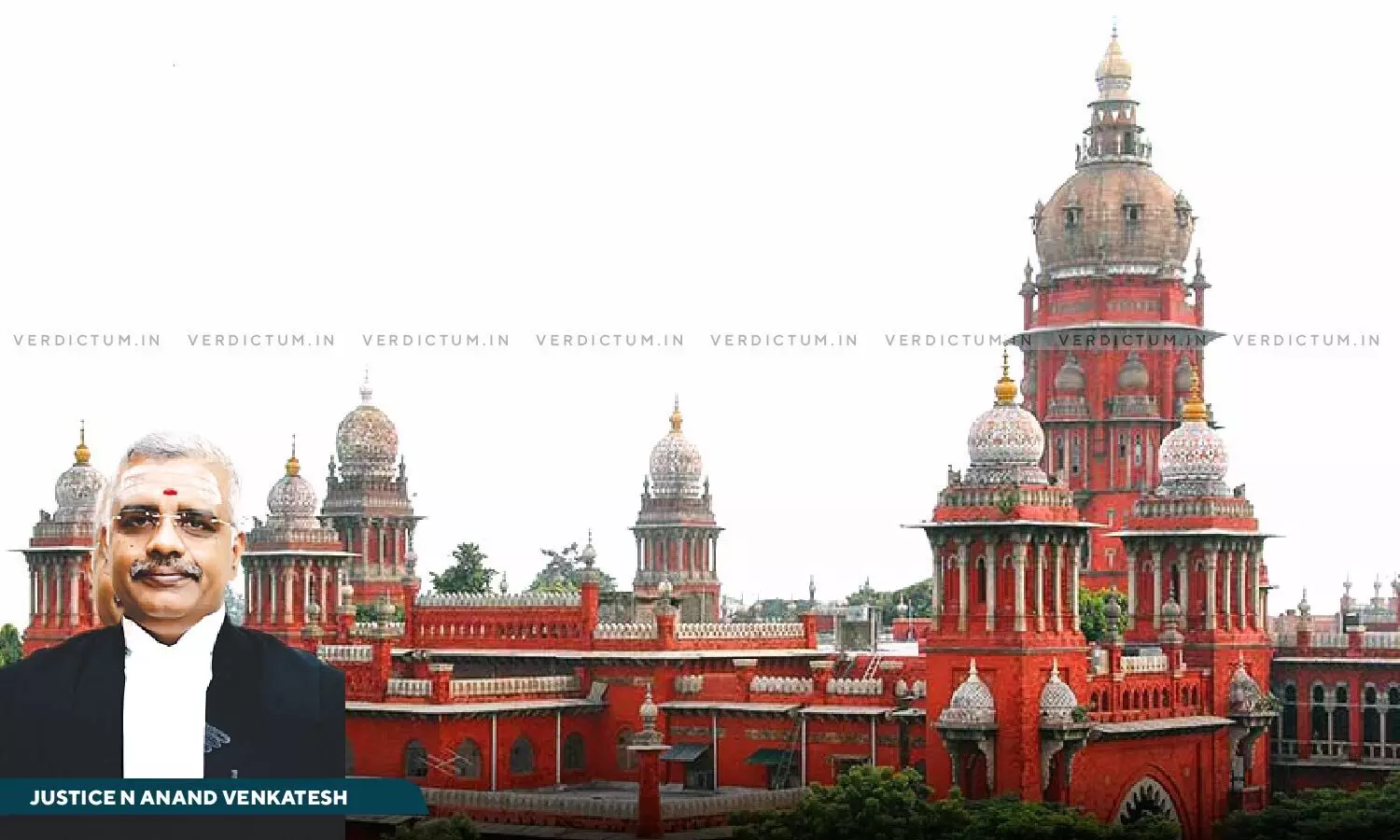
Justice N. Anand Venkatesh, Madras High Court
UGC Regulations On Faculty Appointments Not Applicable To Minority Institutions: Madras High Court
 |
|The Madras High Court held that the University Grants Commission (UGC) Regulations, 2018, concerning the appointment of teachers and academic staff, do not apply to minority educational institutions as they infringe upon the fundamental rights guaranteed under Article 30(1) of the Constitution of India.
The Court also ruled that a separate writ petition challenging these regulations is not required, as their applicability to minority institutions is already unconstitutional. It observed that Article 30(1) of the Constitution is not merely a legal formality and that the Judiciary must recognize its pivotal role in restoring confidence among minorities.
The ruling came while adjudicating a challenge against certain regulations issued by the University Grants Commission (UGC) in 2018 regarding the appointment of associate professors and principals. Justice Venkatesh observed that these regulations were inapplicable to minority-run educational institutions as they would violate their rights under Article 30 of the Constitution.
The Single Bench of Justice N Anand Venkatesh held, "...Both the UGC Regulations on Minimum Qualifications for Appointment of Teachers and other Academic Staff in Universities and Colleges and Measures for the Maintenance of Standards in Higher Education, 2018 as well as the Government Order passed in G.O.Ms.No.5 dated 11.1.2021 adopting the UGC Regulations, 2018 and providing the guidelines on the selection procedure through the constitution of a Selection Committee in line with the UGC Regulations, 2018 infringe upon the Fundamental Right guaranteed under Article 30(1) of The CoI and that they do not require a separate challenge by means of a Writ of Declaration to consider this issue. As a consequence, this Court holds that the UGC Regulations, 2018 will not apply to the minority institutions."
The Court observed, “The Judiciary must recognize its pivotal role in restoring confidence among minorities, acting as a guardian of the rights that were pledged to them, thus reinforcing the very essence of India's democratic ethos and its dedication to unity in diversity."
"The dawn of India's independence heralded a profound commitment to safeguarding the rights of minorities, instilling a sense of security amid apprehensions about their future in a newly sovereign nation. The Constitution of India, a beacon of hope, enshrined these assurances, particularly through Article 30(1), which guarantees minorities the right to establish and administer educational institutions of their choice. This provision was not merely a legal formality. It was a promise made by the framers to protect the cultural and educational identities of minority communities," the Single Bench stated.
The Court emphasized that constitutional courts must act decisively to ensure that the foundational ideals of justice and equality are upheld whenever the rights of minority institutions are under threat.
Background of the Case
The case involved four autonomous, minority-run colleges; Women’s Christian College, Madras Christian College, Stella Maris College, and Sacred Heart Arts and Science College, that had petitioned against the refusal of Madras University and Annamalai University to clear the appointment of various candidates as Assistant Professors.
The universities refused to approve these appointments on the grounds that the selections had not been conducted through a selection committee as mandated by the 2018 UGC regulations, which were later adopted by the Tamil Nadu government in 2021.
The UGC, supported by the State and the Universities, argued that its regulations applied to all educational institutions, including those run by minorities.
Court's Reasoning
The Single-Judge , however, relied on a previous ruling by a Division Bench of the High Court in Forum of Minority Institutions and Associations v. State of Tamil Nadu (2011), which had held that similar UGC regulations from 2000 and 2010 did not apply to minority institutions.
Finding no substantial change in the 2018 UGC regulations to warrant a different conclusion, the Court observed, "The minority institutions need not repeatedly challenge the UGC Regulations as and when new regulations are brought forth unless a substantive change has been introduced in the new regulations, which is not the case in hand."
The Court concluded that both the 2018 UGC regulations and the Tamil Nadu government's 2021 order adopting them were unconstitutional as they infringed upon the petitioners’ rights under Article 30(1).
Consequently, it directed Madras University and Annamalai University to clear the appointments of associate professors without applying these regulations, provided the candidates met all other qualifications.
Cause Title: The Principal & Secretary, Women's Christian College and Ors. v. State of Tamil Nadu and Ors. [Neutral Citation No. 2025:MHC:799]
Appearance:-
Petitioner: Senior Advocate Isaac Mohanlal
Respondent: Special Government Pleader D Ravichandran, Standing Counsel V. Sudha, Standing Counsel Sithirai Anandham, Additional Solicitor General (ASG) AR L Sundaresan, Standing Counsel B. Rabu Manohar
Click here to read/download the Order